Scottish National Party
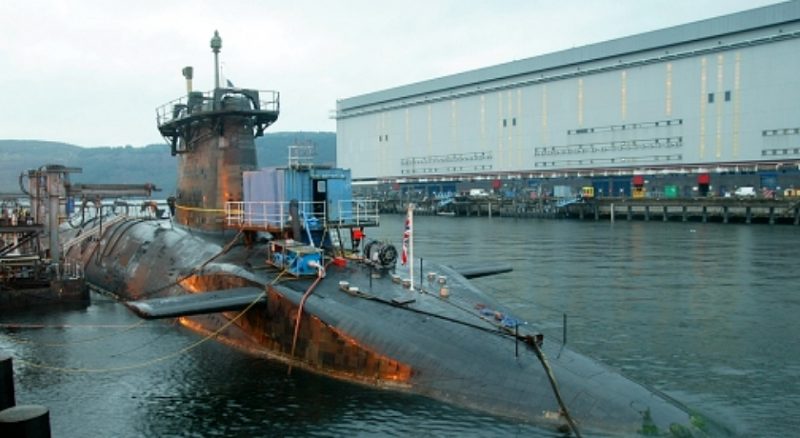
Though its overarching aim is Scottish independence, the Defence policies of the SNP, the governing party in Scotland, are generally already well-established. Its manifesto stresses belief in ‘multi-lateral international co-operation’, in order to address global challenges, with Scotland playing its ‘full part.’ It expects a UK government to ‘participate fully in international institutions’, respecting them and working with them for ‘international peace.’
Like Labour, the SNP believes in immediate withdrawal from the Chagos Islands and their return to Mauritius. Should the SNP be in a position to prop up a minority Labour government therefore, this will certainly happen very quickly.
The SNP has long recognised Scotland is a maritime nation and criticises defence cuts and reduction in conventional forces. As such, its manifesto repeats calls for a SDSR to address ‘new security priorities in the wake of Brexit, and emerging threats in hybrid warfare’. It says that it ‘should assess the need for permanent basing of ocean-going conventional patrol vessels in Scotland.’
The SNP criticises reduction of the Defence presence in Scotland while ‘committing billions’ to Trident’s renewal. According to the SNP manifesto it is ‘increasingly apparent that Scotland’s distinct defence needs are not being met by the current UK government’s defence policy.’ Consequently, the SNP vows to ‘campaign to retain existing Scottish bases and regiments’ and also ‘press for investment in conventional defence.’
The SNP manifesto is at its most strident in making a pledge to get rid of the UK’s sea-based nuclear deterrent force, which it labels ‘immoral, ineffective and expensive.’ It believes an independent Scotland should lead the world in getting rid of nuclear weapons. The SNP manifesto says the party will ‘press the UK government to meet their international obligations on nuclear disarmament.’ Consequently, it signals an intention to ‘build a cross party coalition to scrap Trident as quickly and as safely as possible’. It would invest the alleged £205 billion in ‘public services and build a better future for our children.’
Odin observes:
Scottish territorial waters are vast, and need to be better patrolled (but there again, so does the entire UK EEZ). The SNP also complains about the reduction in the UK’s defence establishment ashore in Scotland while dedicating itself to getting rid of the nuclear deterrent submarines on the Clyde, the most significant presence of all.
Does this mean the SNP will permit the attack submarines to stay if the SSBNs depart and will demand more of the Royal Navy surface fleet is based there – despite Scotland divorcing itself from the UK? Are the SNP secretly working on a Sevastopol-style lease-back idea (such as maintained between Russia and the Ukraine from 1991 to 2014)? We all saw how well that turned out.
Presumably so, for there is no way Scotland’s tiny share of the current British fleet could ever adequately protect Scotland, unless (bearing in mind the SNP’s old hostility to NATO) they invite the Russians and/or Chinese to use the former RN base on the Clyde in order to subsidise it? As ever, the SNP pretends to be concerned about the entire state of the British warships and auxiliary building industry, but the reality is it only cares about Scotland’s slice of the pie (which is already the biggest). It is commendable that in its manifesto the SNP does not single out the Scottish yards for special treatment. Considering the near monopoly on British warship construction the Scots already enjoy (and at the expense elsewhere in the UK where warship construction facilities have been closed) it’s not hard to see why they would adopt that stance.
However, Scotland’s shipbuilding industry would certainly be threatened by the SNP’s main aim, of Scottish independence. The lion’s share of work related to the Type 31 frigate construction is likely to be done in Rosyth at the expense of other British shipyards. But, why should the UK Government accept this, if the Scots vote to leave the Union, all while other UK yards die from lack of work? When it comes to reaping a nuclear disarmament dividend, there is no mention in the SNP manifesto of investing saved billions in the conventional deterrent forces of the UK, including a much-needed expansion of the Royal Navy.
Much of the billions saved from getting rid of Trident and its successor programme would have to be spent in England, to help the economically devastated communities of Plymouth-Devonport, and elsewhere in the SW of England, along with regeneration funds for the poled-axed submarine construction centre of Barrow and the broader NW of England. These are parts of the UK that are already among the poorest, with no likelihood of skilled, well-paying jobs flooding in to replace those lost in submarine construction and refitting.
Devoting tens of billions to giving Plymouth and Barrow better road and rail links to the rest of the UK, as well as more billions procuring more (badly needed) surface warships and attack submarines would help those devastated communities recover. Investment would also be needed in Scotland of course, but the Scottish government cannot expect to get more than is appropriate. It would be morally wrong for the SNP to expect the main compensation for English communities to be cutting up Cold War nuclear submarines.
Plaid Cymru
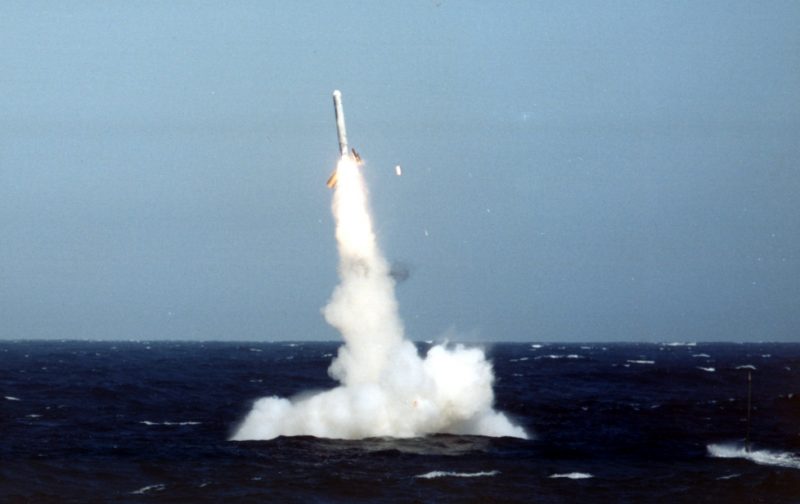
The Welsh nationalists’ manifesto does not cover defence per se. It does suggest global security is an internationally, mutually co-operative endeavour, which will not be much of a surprise for students of history and global affairs. The Plaid manifesto also maintains that ‘with the exception of binding international treaties’, the decision to wage war ‘should require the support of all four [home UK] nations.’ The Welsh nationalists ‘demand’ a vote is held in the Welsh Assembly ‘prior to any UK-supported military intervention in foreign affairs.’ Plaid Cymru is also fiercely opposed to Trident, castigating it as ‘ineffective and unnecessary.’ In addition, the Welsh nationalists oppose any attempt to ‘relocate nuclear weapons [away from Scotland and place them] in Wales or in Welsh waters.’
Odin observes:
Waging war via a four-nation committee would be impossible, and so the UK in time of crisis would sink into a state of paralysis whenever decisive military actions was needed. The Royal Navy does not have too much of a footprint in Wales, but like the SNP, Plaid Cymru would, no doubt, still welcome an enhanced RN presence if it brought investment and increased employment. There is a strong and highly valued Welsh commitment to Britain’s military via the Army and RAF and many Welsh serve as sailors or marines, but the lack of a naval base means Wales feels peripheral to any debate on the future RN (regardless of the nuclear deterrent question). As for the deterrent being ‘ineffective and unnecessary’, some would point out that the fact there have been no nuclear weapons used since 1945 – due to the power of the nuclear deterrent via M.A.D. – proves it has been rather effective. As for nuclear deterrence being ‘unnecessary’, the Welsh Nationalists appear happy to ignore the frequent threats made by Vladimir Putin and his fellow Russian leaders to use WMD against NATO nations that aggravate them. They are ignoring the on-going threat posed by the nuclear ambitions of Iran and North Korea, not to forget the burgeoning strategic missile forces of China. Multi-lateral nuclear disarmament is not a measure Plaid Cymru proposes, however, though surely it might agree with it?
Democratic Unionist Party
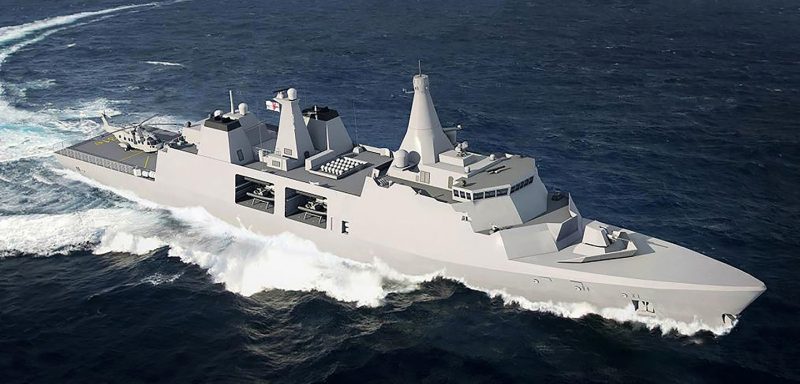
The DUP is the largest Northern Ireland political party taking up seats in Westminster. Previous DUP stances on Defence include seeking to maintain spending of at least two per cent of GDP, while calling for a boost to counter emerging 21st Century (including cyber security) threats. The DUP believes in maintaining the deterrent and supporting membership of NATO.
Its 2019 manifesto describes ‘current defence arrangements for the United Kingdom’ as inadequate ‘to cope with either the existing or the emerging threats of the 21st Century.’ The DUP suggest the MoD is half-hearted in its approach to national defence and they point out that the two per cent target for proportion of GDP devoted to Defence is, in fact ‘a minimum target, a floor not a ceiling, and 2% is significantly below the traditional proportion of GDP that the UK has spent on defence.’ The DUP proposes what it calls ‘2 per cent plus’ in order to ‘plan for systematic defence spending increases.’

The DUP believes the ‘British military industrial complex is no longer in a position to reconstitute large numbers of manpower or materiel to meet the needs of a national crisis.’ The DUP manifesto suggests: ‘Therefore, Defence needs to embark on a medium-term strategy of enhanced investment to restore the size of our Armed Forces to a position that more accurately reflects the threats we face and the strategic ambition to retain P5 status at the UN and play a leading role in NATO. We must always retain the capacity to operate independently in the national interest when required whilst ensuring that we offer credible support to our key strategic ally, the US, and other partners.’
The DUP proposes there is ‘an ever-greater need to strengthen the ability of our forces to deploy rapidly and to adapt to new threats.’ Welcoming the opportunity for a post-Brexit defence review, the DUP manifesto maintains that the UK ‘must reconsider its strategic position in terms of Defence and Security.’ It goes on: ‘Government needs to give a clear strategic vision of the UK’s place in the world and our strategic aims and ambitions. A Review needs to be conducted, independent of government, in order that we have an honest assessment of our current capability and capacity. That will generate a clear indication of the “gap” between what we need to do and what we are currently able to do. Then decisions can be taken about the level of funding required to close the “gap” or the level of risk Government is willing to take on National Security.’
Repeating its commitment to the nuclear deterrent – maintaining and replacing it – the DUP is also eager to see efforts to combat nuclear proliferation, especially to ’prevent the likes of Iran and North Korea developing and further proliferating such capabilities.’ The DUP manifesto also suggests alleviating the crisis in MoD spending by ensuring ‘funding of the nuclear deterrent programme [is] ring-fenced outside of the Defence budget, recognising the unique nature of this National critical strategic asset.’
Odin observes:
An important objective for the DUP is surely generating work for Northern Ireland’s defence industry. The Harland & Wolff shipyard is of special concern considering how close it recently came to closure. As Harland & Wolff was part of the winning Babcock-led consortium for the new Type 31 frigate, the DUP will clearly push for a significant share of the work.
Having supported the Conservative government on a confidence and supply basis after the 2017 general election, the DUP have a demonstrated ability to influence government policy beyond their small number of MPs. Their right-wing political stance does not, however, mean they would automatically support a right-wing government, but rather what would be good for Northern Ireland, which hosts a significant number of defence industry-related enterprises.
In their manifesto the DUP have outlined an approach to UK national defence in detail that is in line with what might be expected to secure the label ‘the party of Defence’. It is unlikely any other party will come close. For all their sensible proposals on Defence, the DUP will never form a government of the entire UK, so their proposals will never be enacted, impressive though they might be.
When it comes to Sinn Fein, which does win Parliamentary seats in Northern Ireland but never sends its MPs to Westminster, it is a hard left pacifist party that, aside from wanting to see Ulster become part of the Republic, sees as its overriding aim the preservation of Irish neutrality. Its policy paper on defence and security (such as it is) display a pronounced anti-American stance, is against a so-called European Army and is opposed to joining NATO missions.
Sinn Fein also aspires to prevent ‘the use of Irish airports, airspace, seaports, or territorial waters by foreign powers in their preparations for war or other armed conflict’. Furthermore, it would ‘actively seek the demilitarisation of the EU and resist efforts at further militarisation of the EU and between Member States.’ Sinn Fein would also ‘amend the Defence Forces Acts to make clear that Irish troops cannot be deployed to areas of conflict in any capacity other than peace-keeping or humanitarian aid missions which have a UN mandate.’ Sin Fein pledges itself to protecting Irish airspace, though with no jet fighters Ireland currently relies on the British air force to provide high altitude interception of intruders. Its most effective warships were built in England as Ireland has no ability to build such ships itself. It is safe to say that Sinn Fein MPs oppose Trident and indeed any funding for the UK Armed Forces.
Of the other Northern Ireland parties, the Social Democratic and Labour Party (SDLP) has no obvious policy on Defence. The Ulster Unionist Party includes in its ranks a former British Army officer while its new leader is ex-RN submarine captain Steve Aiken. A new manifesto for the 2019 election could not be found at the time of writing, but past outlines of policies have include maintaining the two per cent of GDP for Defence and also commitment to the nuclear deterrent.
The Green Party
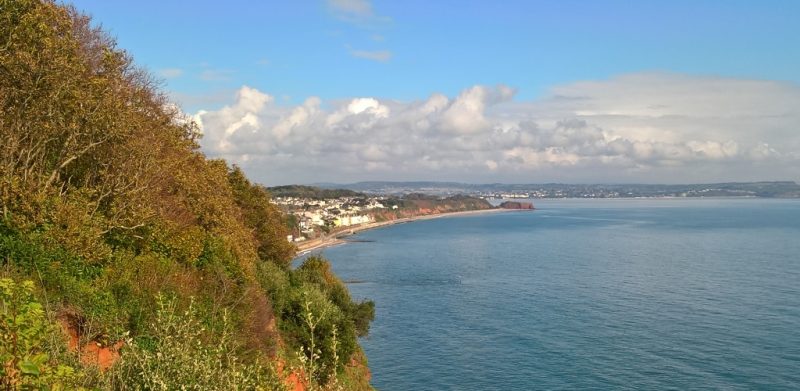
Opposition to the nuclear power industry in itself implies a categorical rejection of Trident. As things presently stand this would also mean scrapping Britain’s entire fleet of submarines (not just the deterrent subs). The Greens promise to replace the MoD with a ‘Ministry for Security and Peace’. This, according to their manifesto, is a ‘key foreign policy objective’ and, as such, under a Green Party government the armed forces would be heavily committed to ‘defending environments around the world from the effects of climate chaos and dealing with the humanitarian and environmental impacts of climate-related disasters.’ The Greens also propose severely curtailing promotion for (and subsidies to) the defence industry in exporting products that ‘fuel conflicts, violence, and suffering across the world’.
Odin observes:
The Greens’ war on ‘climate chaos’ and dealing with the effects of ‘climate-related disasters’ seems to imply the Navy – which is perhaps best tasked to be globally tasked in this respect (and has done so in pursuit of the aforementioned objectives many times) would be almost permanently deployed undertaking Humanitarian Aid/ Disaster Relief (HADR) – and development missions. Though the RN is very well equipped to do HA/DR, it runs the risk of being transformed into a service that does little else and its defence/war-fighting missions would suffer, which is perhaps the point of such a policy. The defence industry would soon be killed off and create economic devastation across the UK. Under the Greens there may perhaps be scope for the shipbuilding industry busy constructing vessels suited to their foreign policy objectives, but there would be no more warships.
The Brexit Party
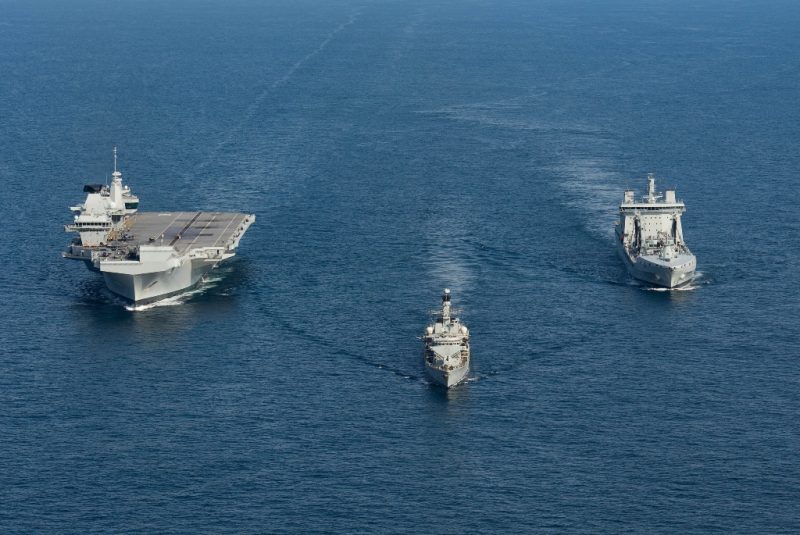
Being essentially a single-issue party, the Brexit Party has had very little to say about anything other than, er, Brexit. Unsurprisingly therefore, breaking free from ‘entanglement in the EU’s integrated defence’ was a leading aspect of what it did have to say with reference to its aims (having declined to publish a manifesto per se). The Brexit Party has stressed a commitment to NATO and to spending two per cent of GDP on defence ‘as an absolute minimum.’
Odin Observes:
Exiting the European Defence Union will simultaneously mean leaving the EU defence procurement directive, enabling Britain to ensure defence contracts are awarded to domestic industry. It is debateable just how much this would impact on defence procurement as much of it is already given to British contractors. The most notable recent shipbuilding contracts awarded overseas were placed with a South Korean shipyard. It’s hard to otherwise comment on the Brexit Party and defence, without an actual manifesto to give clues. That in itself is testament to the single-issue focus of a party that contains people from both the right and left of the political spectrum who may disagree violently with each on how to best defend the UK.
Odin’s final observation:
In keeping with the madness of our times, it’s worth outlining the Defence policy of the Official Monster Raving Loony Party (MRLP), which in some ways seem no more insane than some of the proposals outlined above. The MRLP suggested in 2015 election manifesto that Trident should be scrapped and replaced ‘with a new Tuning Fork’ while expressing a dim view on the leader of the Labour Party’s likely defence of UK overseas territories by suggesting: ‘We shall keep the Falklands and Give Jeremy Corbyn to the Argentinians.’ The MRLP is putting up a candidate named Count Binface against current P.M. Boris Johnson in his constituency. Jeremy Corbyn will vie for his seat with the MRLP’s Incredible Flying Brick. Good luck to one and all and especially the UK because when it comes to Defence the situation may well get even more monstrous than it already is.





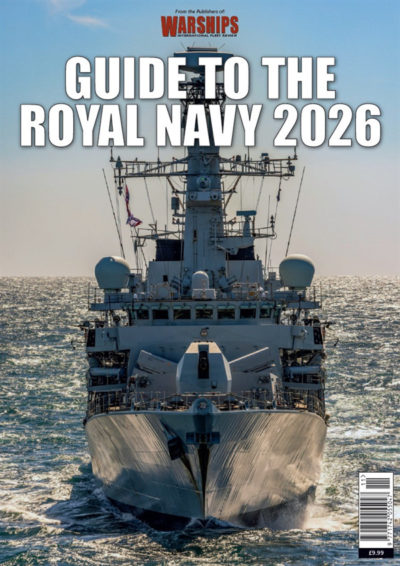
Comments
Sorry, comments are closed for this item